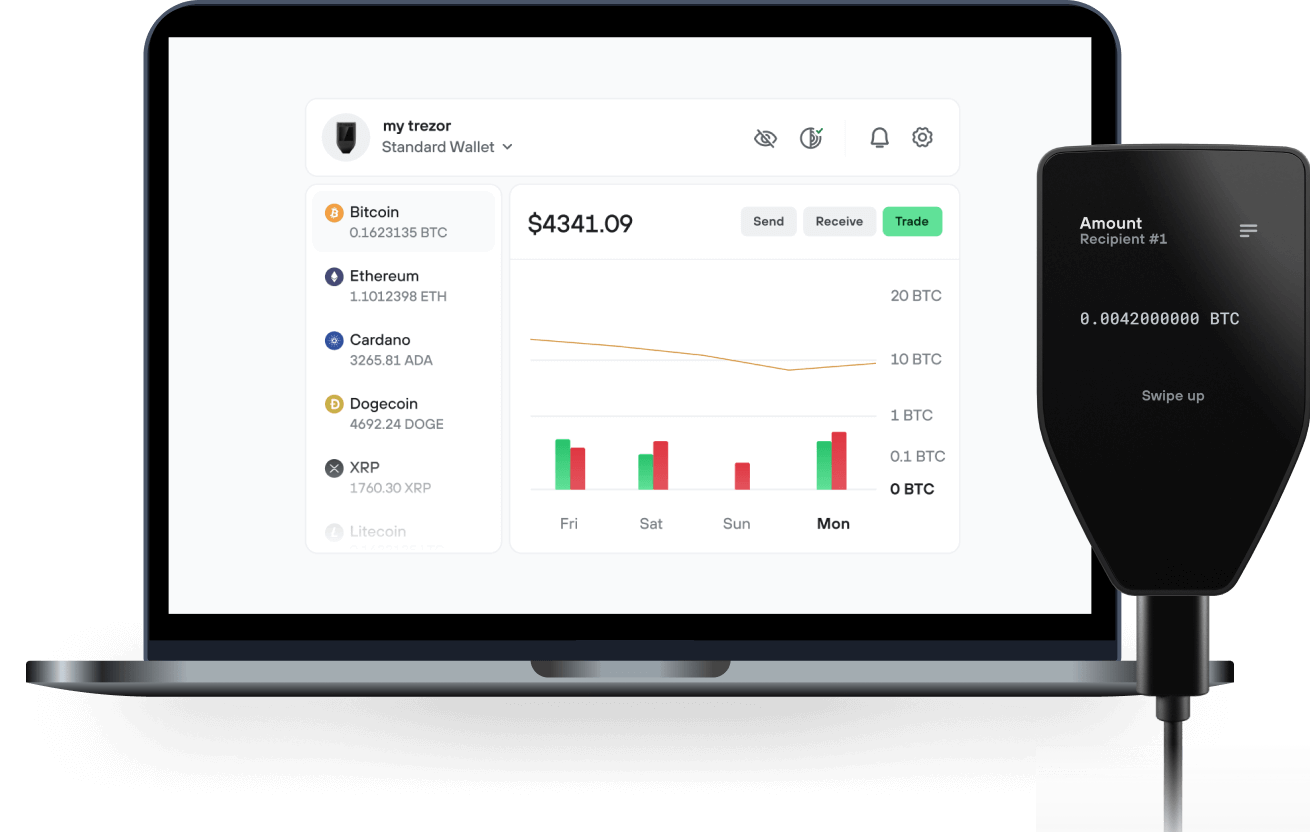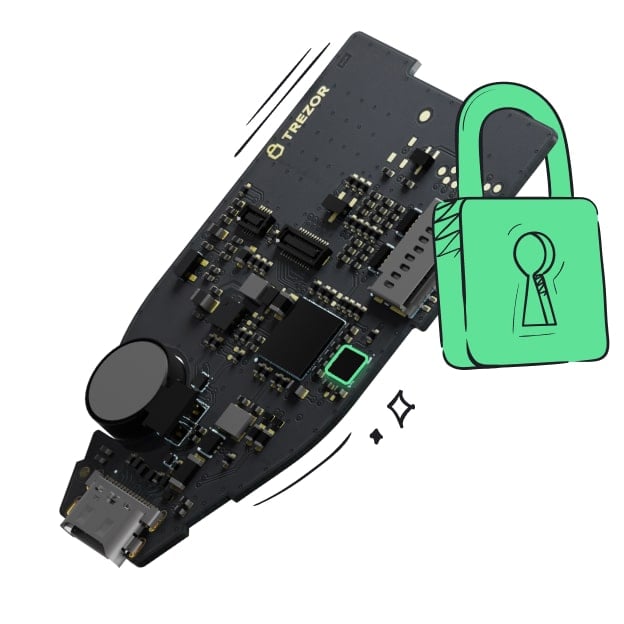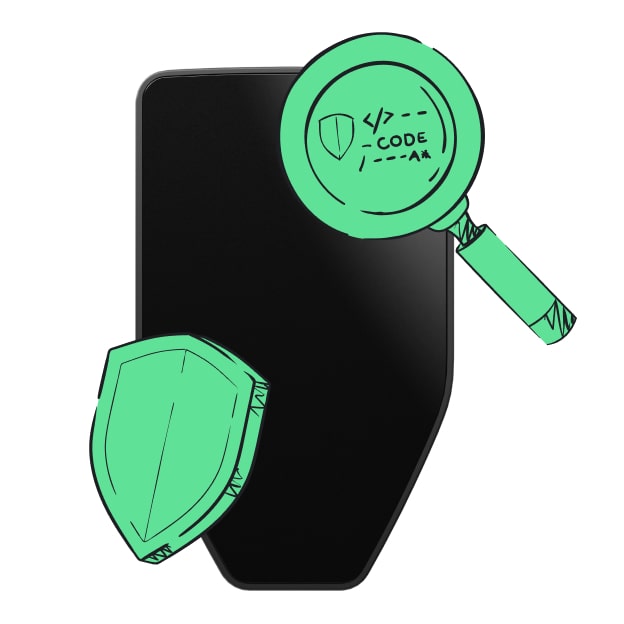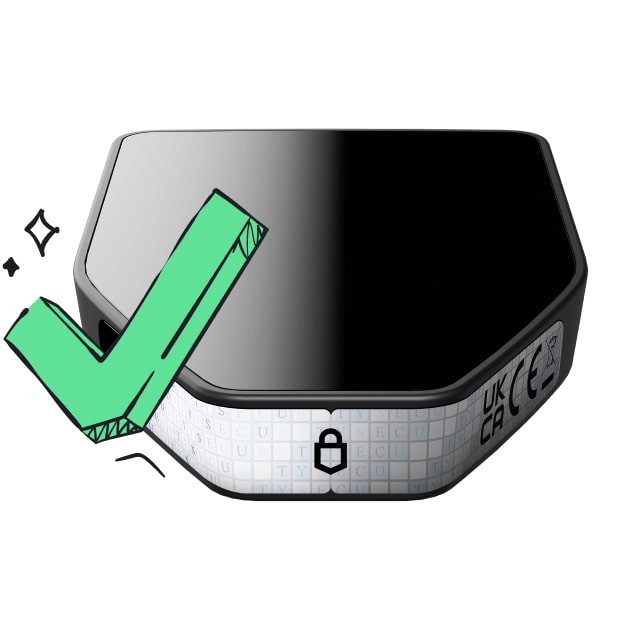Safe & secure FUSION wallet
Take control of your FUSION assets with complete confidence in the Trezor ecosystem.
- Secured by your hardware wallet
- Use with compatible hot wallets
- Trusted by over 2 million customers

Send & receive your FUSION with the Trezor Suite app

Send & receive
Trezor hardware wallets that support FUSION
Sync your Trezor with wallet apps
Manage your FUSION with your Trezor hardware wallet synced with several wallet apps.
Trezor Suite
MetaMask
Rabby
Supported FUSION Network
- Ethereum
Why a hardware wallet?
Go offline with Trezor
- You own 100% of your coins
- Your wallet is 100% safe offline
- Your data is 100% anonymous
- Your coins aren’t tied to any company
Online exchanges
- If an exchange fails, you lose your coins
- Exchanges are targets for hackers
- Your personal data may be exposed
- You don’t truly own your coins
How to FSN on Trezor
Connect your Trezor
Open a third-party wallet app
Manage your assets
Make the most of your FSN
Trezor keeps your FSN secure
 Protected by Secure Element
Protected by Secure ElementThe best defense against both online and offline threats
 Your tokens, your control
Your tokens, your controlAbsolute control of every transaction with on-device confirmation
 Security starts with open-source
Security starts with open-sourceTransparent wallet design makes your Trezor better and safer
 Clear & simple wallet backup
Clear & simple wallet backupRecover access to your digital assets with a new backup standard
 Confidence from day one
Confidence from day onePackaging & device security seals protect your Trezor’s integrity
Fusion is a project which consists of an all-inclusive blockchain-based financial platform that offers cross-chain, cross-organization, and cross-data source services through smart contract employment. FUSION was established by the CEO of BitSE, an incubation company which developed QTUM Blockchain and the VeChain blockchain, crypto projects which are both successful. Fusion uses the Hierarchical Hybrid Consensus Mechanism (HHCM) that borrows things from PoW and PoS. At the same time, it uses a parallel computing by grouping nodes together, creating an efficient and safe platform.
The Fusion team used in its whitepaper the term Internet of Values which refers mostly to cryptocurrency related matters, such as the exchange and management of digital assets securely and without intermediaries. The Distributed Control Right Management is a security layer that protects all locked-in cryptocurrency assets on the Fusion blockchain. The distributed storage and sharding of a private key ensures that no one can have access the complete private key, meaning that no single node can gain control of the digital assets. Along with the traditional transaction triggering mechanism, FUSION incorporated time and event based triggers into its smart contracts. These three triggering modes have resulted from various financial situations, and have been designed to meet the requests of complex financial smart contracts.
BitSE, the company behind the Fusion Project, was founded in 2013 by Dejun Qian, being also responsible for the creation of QTUM and VeChain. QTUM and VeChain are both blockchain foundations which developed into independent ventures. The native token of the Fusion platform, FSN, will be used in paying network fees. Smart contracts require FSN in order for them to be executed, much like how ETH is used in the Ethereum network. Fusion (FSN) has a short history in the cryptocurrency market, which does not allow us to make predictions in the long term. Fusion cryptocurrency will have its Fusion mainnet launch before 30th June. We can expect a small increase in price due to this.